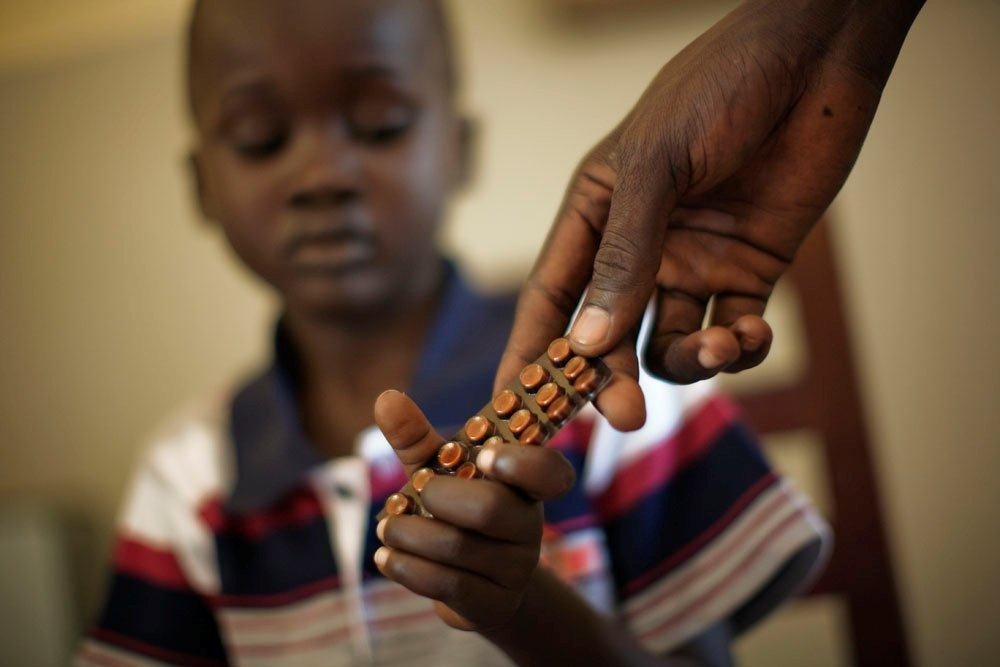AS-MQ Dose Impact Study Group
AS-MQ Dose Impact Study Group

Assessing the effect of mg/kg dosing strategies on the risk of treatment failure in patients treated with the currently recommended dose of artesunate-mefloquine (AS-MQ)
Data collection has closed and curation is onging, with analysis expected in Q2 2018.
The study: The effect of dose on the antimalarial efficacy of artesunate-mefloquine against Plasmodium falciparum malaria: a protocol for systematic review and individual patient data (IPD) meta-analysis was published in 2019.
The efficacy of Artemisinin Combination Therapies (ACTs) is influenced by both the artemisinin derivatives and the partner drug. The drugs should cure patients and also prevent the survival and spread of artemisinin resistant strains of Plasmodium. The dosage of partner drugs must be sufficient to ensure that blood concentrations exceed the minimum inhibitory concentration of the parasite until all parasites have been killed. Although target doses are usually given as a total mg/kg over three days, in practice, manufacturers’ recommendations are often pragmatic and based upon weight ‘banding’. This approach inevitably results in some patients at the margins receiving either lower or higher dosages. Young children are particularly vulnerable to extreme total dosages especially when drug administration is based on tablets rather than paediatric formulations or suspensions. The problem is further confounded when dosing is recommended according to age bands rather than actual body weight. Preliminary modelling of dosing strategies according to known ‘weight for age’ demographics in malaria patients, suggests that the wide range of mg/kg dosing used may impact significantly on treatment efficacy and possibly safety. One of the most common partner drugs currently prescribed for uncomplicated malaria is mefloquine. The combination artesunate-mefloquine (AS-MQ) has been used since 1995 in Southeast Asia. The standard regimen for uncomplicated malaria is a three day regimen, with a total of 12mg/kg artesunate and 25mg/kg of mefloquine split over a three day regimen. Due to the poor tolerability of high dose mefloquine, the dose of mefloquine is usually divided into either two doses (15 and 10 mg/kg), or as a fixed dose combination of three (8mg/kg/day). In this meta-analysis these two formulations of AS-MQ will be compared with regard to tolerability, efficacy and practicality of dose banding.
- Determine the mg/kg dosing range of the clinically-adopted ACT partner drug mefloquine
- Investigate the effects of mefloquine and artesunate mg/kg dosing on early and late clinical outcome
- Investigate the tolerability of AS-MQ across different study sites, population and age group
- Prospective clinical efficacy studies of P. falciparum (either alone or mixed infections);
- Studies assessing only the efficacy of the fixed dose combination of AS-MQ or loose combination of AS-MQ with a MQ regimen split in two doses of 10 mg/kg at D1 and 15 mg/kg at D2
- Artesunate-mefloquine treatment with a minimum of 28 days follow up with genotyping performed for late parasitological outcome; and,
- Individual patient data on exact dosage of mefloquine received (actually or per protocol) by patients (dosage per tablets, number of tablets given per dose and duration of treatment).
- Drug manufacturer
- Whether all doses were supervised
- Safety parameters recorded
After upload to the WWARN Data Repository, WWARN will standardise data sets according to the WWARN Clinical Data Management and Statistical Analysis Plan and pool into a single database of quality-assured individual patient data. Analyses (subject to Study Group approval) may include:
- Dosing strategies adopted by different studies will be reviewed and the profile of total mg/kg dose of mefloquine defined. In those patients for whom exact treatment dosage was recorded, adherence to study protocols will be assessed;
- Clinical outcome (Pf PCR adjusted and unadjusted treatment failure at day 28 and 42) will be defined and significant baseline risk factors, for example age and parasitaemia, identified; and,
- The effect of mg/kg dosing on clinical outcome will be analysed after controlling for other known confounding factors, including drug source.
Kaplan Meier survival analysis will be used to define treatment efficacy and Cox’s regression analysis with shared frailty on study sites will be used for both univariate and multivariate analyses.
This analysis will determine whether differences in current dosing strategies affect the assessment of efficacy of artesunate-mefloquine.
The Study Group comprises participating investigators who contribute relevant data sets to the pooled analysis. Data sets remain the property of the investigator. The Study Group collectively makes decisions with respect to including additional studies, data analysis and plans for publication, in line with the WWARN Publication Policy. The Study Group will identify one or two people to coordinate activities including data analysis, and drafting of publications and reports for group review.
For further information, or to learn about joining the study group, contact the WWARN clinical group (clinical@wwarn.org).

